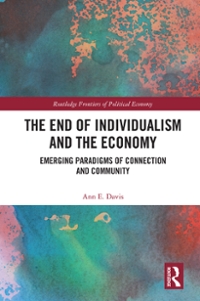Question
This problem is giving me trouble. Consider an individual who has preferences over consumption and leisure. The utility function is ln (c) + (1 )
This problem is giving me trouble.
Consider an individual who has preferences over consumption and leisure. The utility function is ln (c) + (1 ) ln (l), and his budget constraint is c = w (1 l) where c is consumption, l is leisure time and w is the wage rate. The total time available for work or leisure is normalized to 1. The marginal utility of leisure is MUl = (1 ) /l and the marginal utility of consumption is MUc = /c.
1. Why should the relation MUc w = MUl hold at an optimum?
2. Show that labor supply is independent of the wage rate, w. Explain.
3. Is this a good model of labor supply in the long-run?
Step by Step Solution
There are 3 Steps involved in it
Step: 1

Get Instant Access to Expert-Tailored Solutions
See step-by-step solutions with expert insights and AI powered tools for academic success
Step: 2

Step: 3

Ace Your Homework with AI
Get the answers you need in no time with our AI-driven, step-by-step assistance
Get Started


